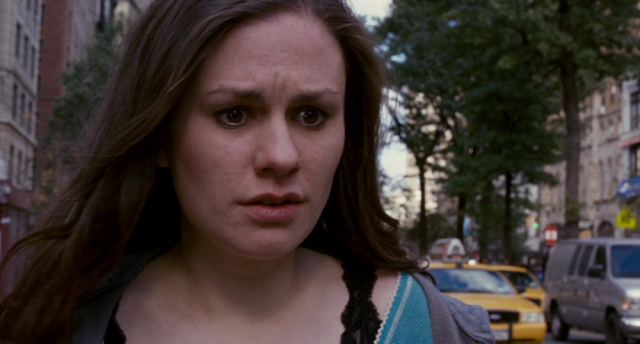Episodes: Perfect enemies of the good

A couple of days ago, I was talking about Manchester by the Sea with someone, trying to convince them to see it (for whatever reason, I run into a ton of people who just find the idea of this movie very unappealing, and I wonder if I am alone in that), and I told them, finally, that it was pretty close to a perfect movie.
This is, I think, more or less true. The acting is exquisite. The script is one of the best structured screenplays in recent memory. The direction is impeccable. Every frame of this movie does exactly what it needs to. No more, and no less.
It's a better movie in almost every way than director Kenneth Lonergan's previous film, 2011's Margaret. But I don't really know that it's as great of a movie as Margaret -- if that makes sense.
The older I get, the less I respond to works of art that approach perfection beyond the moment in which I'm experiencing them. Instead, I love staggeringly ambitious things that come close, but ultimately fall short of everything they're trying to do. They feel more to me like they emerge from human beings, I guess.
This dynamic, for me, played out in TV with Breaking Bad and Mad Men. The former was a more perfect work, where even the rough edges seemed part of an intricate, perfectly thought out design. Mad Men was all over the place. It would sometimes do whole stretches of episodes that didn't seem to add up to much. But it felt more human to me somehow, more open to the mess and weirdness at the center of the soul.
And this has really been more and more true as I've gotten older. When I was a teenager, something like, say, The Shawshank Redemption, with its puzzlebox structure and its sense of every little piece being part of a more perfect whole really spoke to me. But when I've revisited that film as an adult, I still like it but also feel like it's airless and closed off from the world. It feels a little like a snowglobe.
I think maybe it comes back to whether you want art to be an object -- a perfect thing that you can hold up in the sky and admire -- or whether you want it to be a reflection of something imperfect but breathing and bleeding and messy. I've been known to take too much to heart the movies and TV shows I see where the mess is right there, in front of me, and I've been taken to task for that a few times by people who routinely follow my work and wonder just what the hell I'm talking about some of the time.
This probably stems from my religious upbringing (doesn't everything?!), where perfection, in art as in life, was unattainable, and to try to attain it was to fall short, endlessly. We are, none of us, problems to be solved, or puzzles to put back together. Approaching art as an object suggests there's some carefully hewn version of our own universe, where everything makes sense, and all of the pieces add up. But when we see it as a reflection, we can hopefully realize it's just as strange and messy as human beings are.
So yes, give me the perfect movies, the novels written with great exactitude, the TV shows where every little hint adds up. But I'll always be drawn back to the story that shoots for the stars and plummets earthward when it realizes how off the mark it was. Somewhere in there, I might catch a better glimpse of myself.
--
Episodes is published three-ish times per week, and more if I feel like it. It is mostly about television, except when it's not. Suggest topics for future installments via email or on Twitter. Read more of my work at Vox Dot Com.



